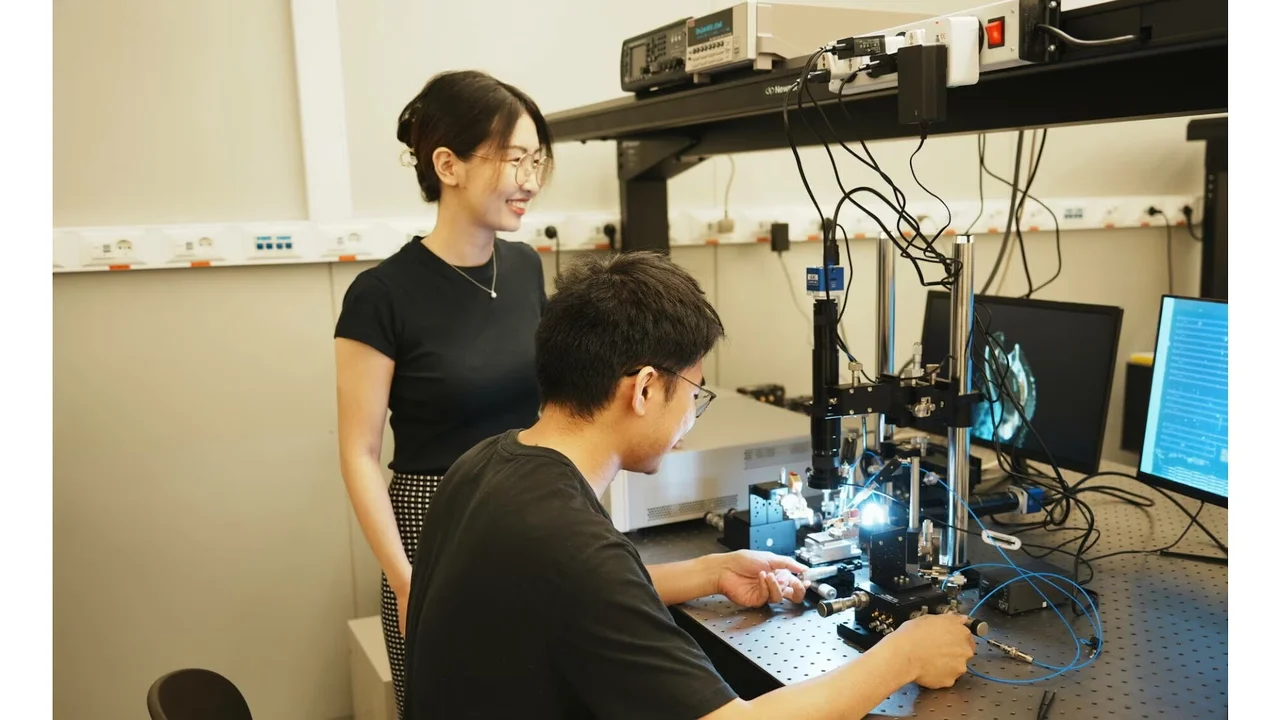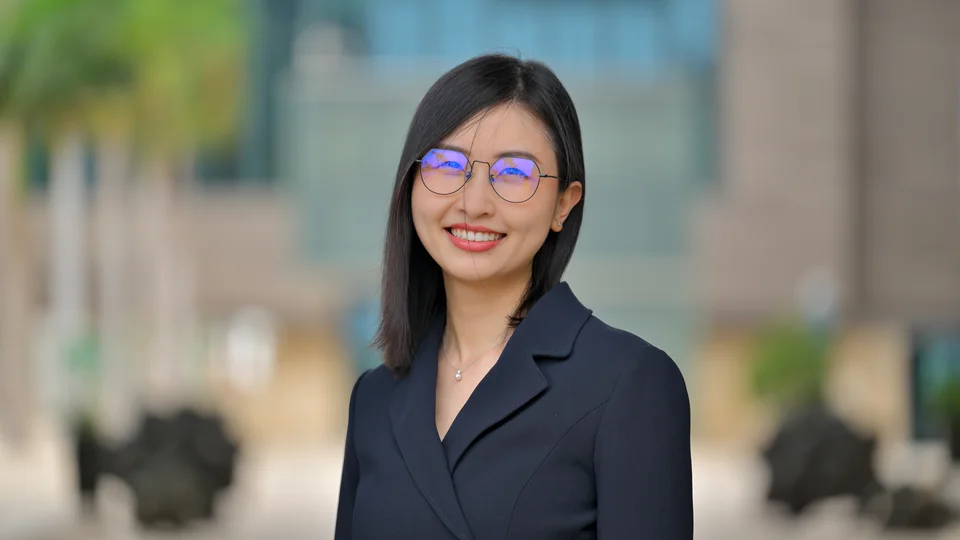
A New Energy Focus
A move to KAUST brings an enlightened approach to research and everyday life.
About
Silicon photonics, the subject of Yating Wan’s research, may be a technology of which few people have yet heard. But the technology’s potential application, powering artificial intelligence (AI), is a topic everybody is talking about.
“To make AI and machine learning possible, you need powerful hardware, but this consumes a lot of computation capacity and a lot of energy,” Wan explains. “We think we can use silicon photonics to develop efficient optical computers for AI,” she says.
Optical computers perform calculations using light instead of electrons. The photonic fibers in an optical computer have a data transmission capacity 1,000 times greater than that of an electronic wire, while consuming much less energy.
In Wan’s lab, a focus of the work is to integrate lasers, the optical computer’s light source, onto silicon chips. Since silicon itself is a very poor light emitter, the team is looking at ways to bond other light-emitting semiconductors onto the chip. “If we can achieve it, we can make the technology more cost effective and more suitable for mass production,” Wan says.
“We can make the technology more cost effective and more suitable for mass production.”
Until joining KAUST in 2022 to carry out her research, Wan had never been to Saudi Arabia or the Middle East before. “Initially, I joined mainly because KAUST has very good ‘hardware’ – very good infrastructure for semiconductor device fabrication and imaging, which I need for my work,” she says. “But once I got here, what impressed me most is the ‘software’ – the KAUST community.” KAUST’s small and tight-knit population has been very supportive as Wan settled in and established her research group, she says. “People from the same field or from different backgrounds can easily interact and collaborate.”
KAUST has also provided a very good life and work balance, she adds. “When I worked in the US, I found it impossible to combine my research with looking after my young son,” Wan says. “For six years he lived with my family in China. It was difficult.”
But at KAUST, Wan’s son’s school is just five minutes from her office. After-school activities, holiday camps and many great opportunities for kids to play and be involved are also readily available, Wan says. “KAUST gave me the opportunity to find a balance, and I’m very appreciative of that.”
“To encourage more women into research, I don’t think we need to offer special opportunities – just real, practical support to take care of our family,” Wan says. With such support in place, she says, male and female researchers can compete equally at a professional level.
Wan is excited by the possibility that one day her research will be used in real products and influence the world, even if her contribution is just a small part of that product. “I choose to work in academia, not industry, because I love this learning environment,” Wan says. “When I see my students’ progress, that gives me a lot of fulfillment.”
